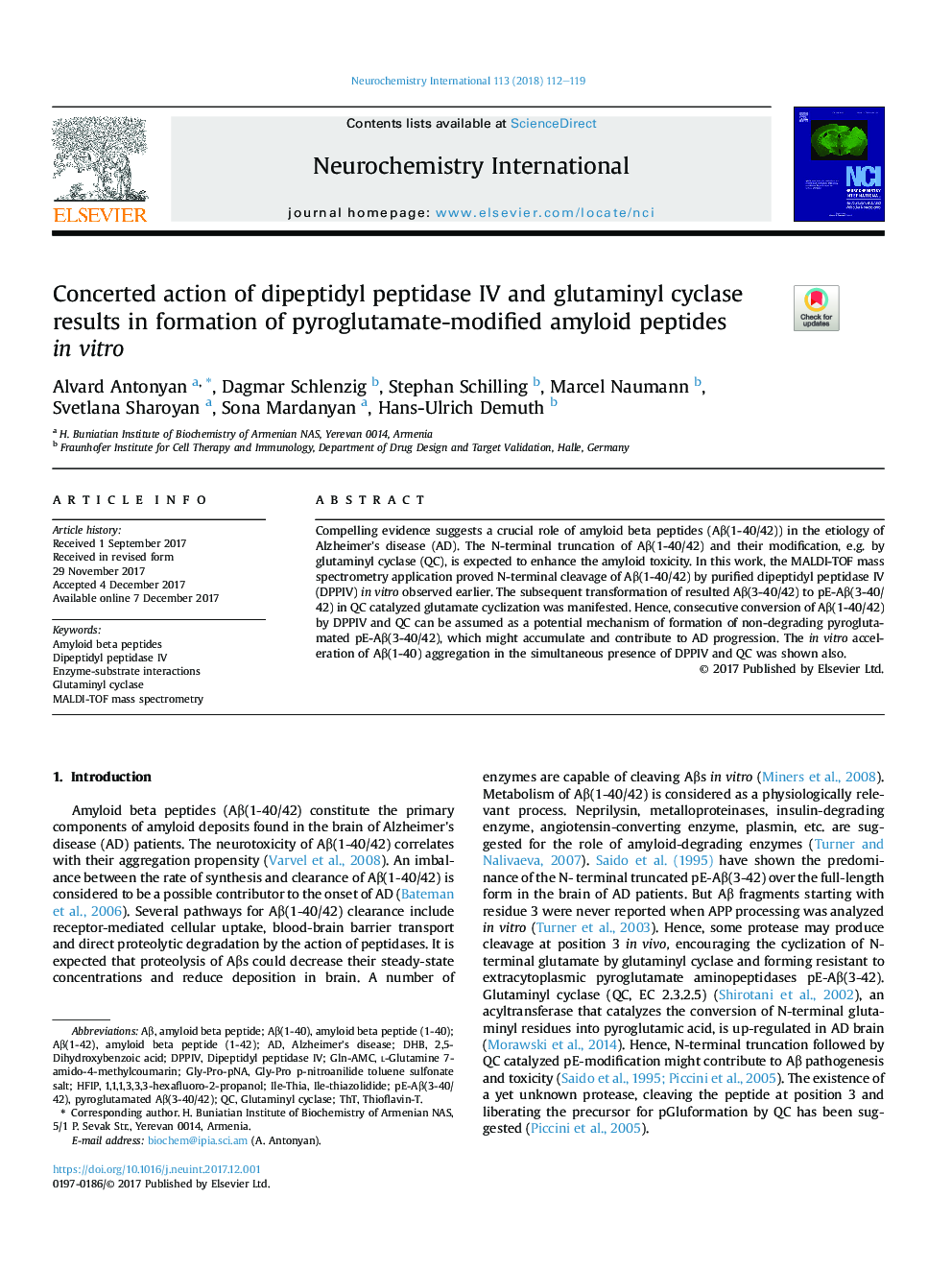| Article ID | Journal | Published Year | Pages | File Type |
|---|---|---|---|---|
| 8478982 | Neurochemistry International | 2018 | 8 Pages |
Abstract
Compelling evidence suggests a crucial role of amyloid beta peptides (Aβ(1-40/42)) in the etiology of Alzheimer's disease (AD). The N-terminal truncation of Aβ(1-40/42) and their modification, e.g. by glutaminyl cyclase (QC), is expected to enhance the amyloid toxicity. In this work, the MALDI-TOF mass spectrometry application proved N-terminal cleavage of Aβ(1-40/42) by purified dipeptidyl peptidase IV (DPPIV) in vitro observed earlier. The subsequent transformation of resulted Aβ(3-40/42) to pE-Aβ(3-40/42) in QC catalyzed glutamate cyclization was manifested. Hence, consecutive conversion of Aβ(1-40/42) by DPPIV and QC can be assumed as a potential mechanism of formation of non-degrading pyroglutamated pE-Aβ(3-40/42), which might accumulate and contribute to AD progression. The in vitro acceleration of Aβ(1-40) aggregation in the simultaneous presence of DPPIV and QC was shown also.
Keywords
Related Topics
Life Sciences
Biochemistry, Genetics and Molecular Biology
Cell Biology
Authors
Alvard Antonyan, Dagmar Schlenzig, Stephan Schilling, Marcel Naumann, Svetlana Sharoyan, Sona Mardanyan, Hans-Ulrich Demuth,
